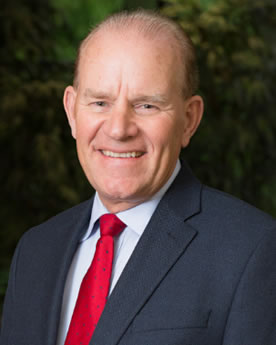
COURSE CREDITS & HOURS
AMA PRA Category 1 Credits™14 ACPE Credits
COURSE FEES
TARGET AUDIENCE
PROGRAM PURPOSE
- Optimizing Results through Teamwork
- Apply the characteristics of successful teams and tools to build teamwork and improve outcomes
- Describe how teamwork can improve chronic disease metrics
- List and explain stages of team formation
- Preparing Your Patients for a Successful Transition to their Golden Years
- Improve the wellness of the elder patients seen
- Address preventive measures for elder patients
- Provide appropriate medication management for the elderly
- Improve communication strategies in discussing advance directives with patients
- Medical Error Reduction: Optimizing Outcomes and Patient Safety
- Discuss types of medical errors that can result in increased morbidity and mortality
- Minimize potential cognitive error risks to result in improved outcomes and patient safety
- Explain how diagnosis momentum can result in medical errors
- Travel Medicine: Prevention Goes International
- Discuss the scope of US travelers abroad
- Assess appropriately the medical risk to the traveler
- List commonly needed Immunizations for travelers
- Implement helpful travel preventative treatments
- Utilize travel medicine related website resources
- Optimizing Patient Safety - Appropriate Opioid Prescribing
- Appropriately evaluate a patient for Chronic Pain
- Utilize general guidelines for prescribing Controlled Substances / Opioids, including the new CDC guidelines
- Implement the use of multiple modalities in managing chronic pain
- Explain the added risks when prescribing opioids in excess of 100 mg Morphine Equivalent Dosing (MED)
- Implement strategies to improve patient safety and compliance with guidelines in prescribing opioids and other Controlled Substances
- Health Promotion: Encouraging a Healthy Body, Mind, and Spirit
- Assess the patient's current state of physical, psychological, and spiritual health.
- Analyze the patientÂs current dietary and exercise practices.
- Discuss an individualized health-promotion strategy for each patient.
- "Oh, My Aching Head!": Evaluation and Treatment of Migraine, Tension-Type, and Cluster Headaches
- Discuss the appropriate use of brain imaging in evaluating patients with headache.
- Describe the appropriate use of abortive and preventive medications in the treatment of migraine.
- Describe the distinguishing clinical characteristics of tension-type and cluster headaches.
- Male Sexual Disorders: Hypogonadism, Erectile, and Ejaculatory Dysfunction
- Elicit a through, non-judgmental sexual history.
- Describe appropriate laboratory and radiologic testing in the evaluation of male sexual problems.
- Discuss the effects, risks, and benefits of testosterone replacement therapy.
- "I'm Sick and Tired of Being Tired!": Approach to Chronic Fatigue
- Describe the exclusion and inclusion criteria for chronic fatigue syndrome and distinguish this syndrome from other types of chronic fatigue
- Elicit and address the diagnostic beliefs of patients regarding the etiology of their fatigue
- Apply specific principles of cognitive-behavioral therapy and graded exercise therapy in the treatment of patients with chronic fatigue
- Hypertension: "What Goes Up Must Come Down"
- Describe the appropriate measurement and classification of hypertension.
- Discuss the laboratory testing and imaging needed to diagnose the most common causes of secondary hypertension.
- Describe the major classes of anti-hypertensive treatment and discuss the particular type of patient likely to benefit from each class of medication.
- Enhancing Clinician-Patient
- Distinguish the technical , biomedical aspects of the clinician's role from the personal and psychosocial aspects of care.
- Describe specific attitudes and values needed to create a healing environment with patients.
- Apply techniques for establishing and maintaining rapport with patients and enhancing clinician-patient communication.
- The Faith Factor: Practicing Spiritually-Sensitive Care
- Elicit a spiritual history in an ethically-appropriate manner.
- Analyze the physiologic, psychological, social, and lifestyle effects of religious beliefs upon health outcomes.
- Describe the spectrum of possible interventions available for addressing patients" spiritual needs.



























